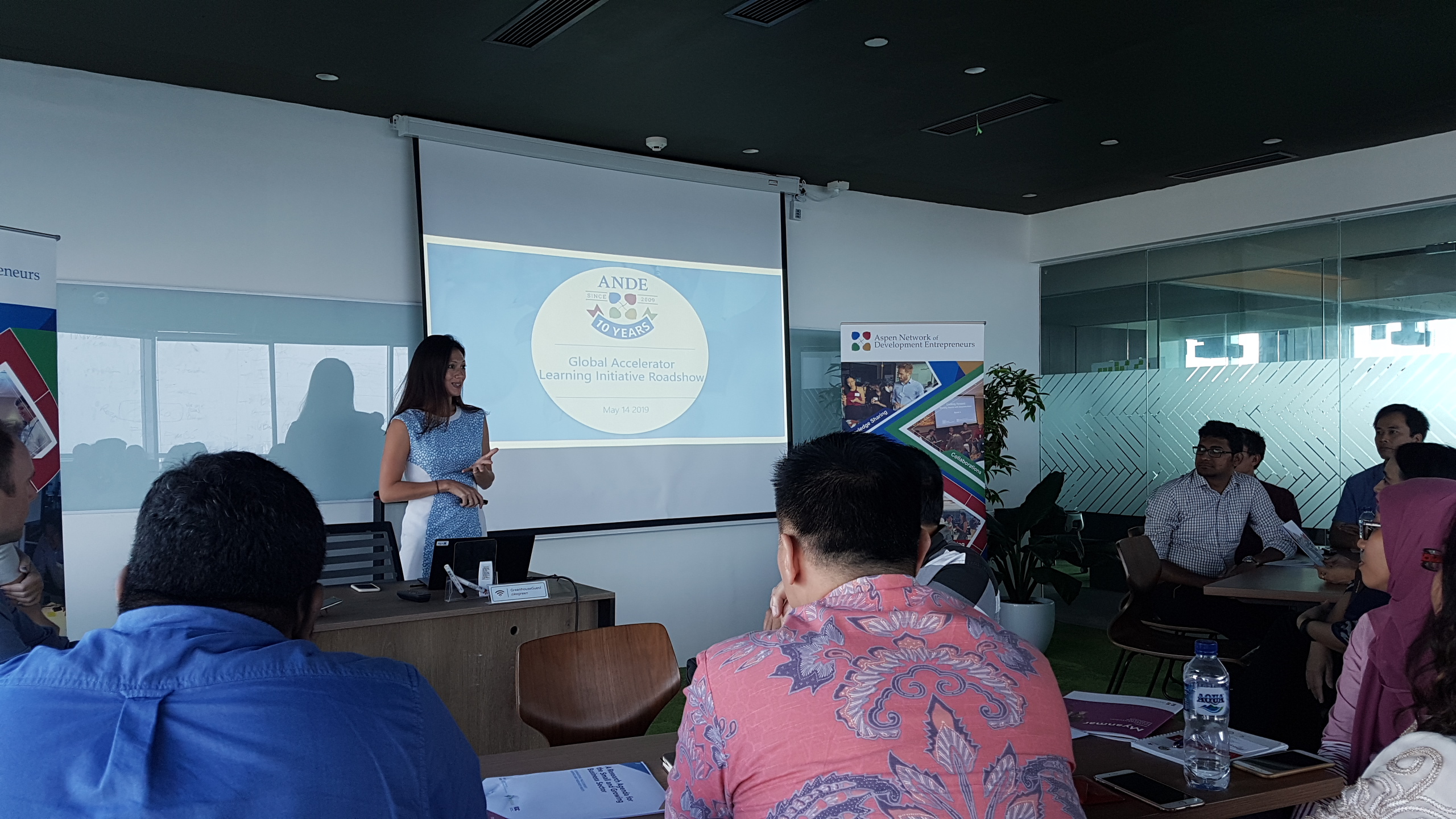On 14 May, GALI organized an event to discuss the latest regional insights and implications for entrepreneur-support programs produced by the Global Accelerator Learning Initiative (GALI). The event was held at Greenhouse Jakarta, it has participants from incubators, accelerators, and universities from Jakarta & other Asia regions. Since 2015, GALI has been collecting data and conducting analysis of accelerator effectiveness. Global Accelerator Learning Initiative (GALI) shared key findings from its research on incubators, accelerators and other entrepreneur-support programs in the Asia region and discussed the implications moving forward. Benedikta Atika attended this event to represent ANGIN team.
The speakers on this event are Fai Wechayachai (Regional Chapter Manager of the Aspen Network of Development Entrepreneurs (ANDE) to talk about “ANDE East & Southeast Asia Activities for 2019 and beyond”, Brent Ruth (Global Partnerships Manager, GALI) to talk about “GALI Global and Regional Insights” and “Data Utilization for Accelerators: Case Exercises & Discussion”, the last speakers are Romy Cahyadi (Founder and CEO Instellar) and Valentine Gandhi (Co Founder and Head of Data Innovation, NIRAS Data Futures Hub) and they talk about “Experience in Becoming a Data Driven Accelerator”.
Key points on the report includes:
– Partners need to be more engaged on incubators, accelerators, and other entrepreneur support programs.
– Entrepreneur-support program providers should focus on the quality of the participants instead of the quantity.
– Experiential learning is a key to help participants improve their outcomes.
– Networking session as the primary accelerator benefits can contribute better success.
– Entrepreneur-support program providers can focus on women and minority/underserved participant profiles.
Other key points shared on the discussion:
– There are no prescriptive approaches in defining the best entrepreneur program designs. Successful metrics are subjective. Different entrepreneur supports have their own definition of success, e.g. the ability to generate revenue, profitability, investability, and survivability.
– Data is getting more important nowadays to help our decision making, including the program design improvement. Example: Instellar that shared how it uses data to modify the curriculum, mentorship, and map the participants better.
– Entrepreneur-support program providers should understand their attributions of the participants’ success.
You can see further insights here: https://www.galidata.org/insights/)





